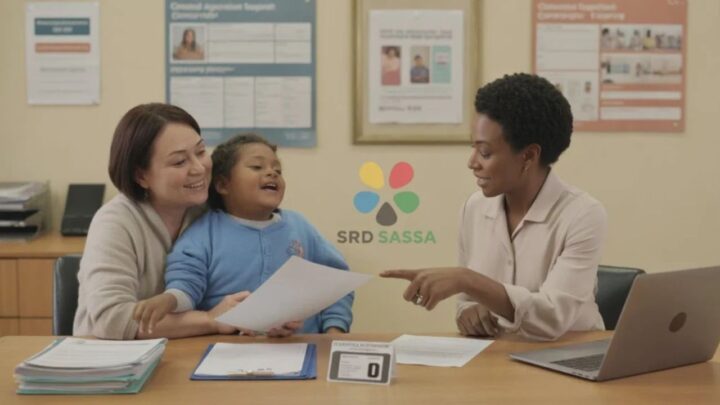The Care Dependency Grant in South Africa will pay R2080 each month starting in 2025. SASSA made this announcement to help families who look after disabled children. The money goes to parents foster parents and caregivers who take care of kids under 18 with special needs. These children need full-time care because of their physical or mental conditions. Taking care of a disabled child costs a lot of money. Families need to pay for doctor visits special equipment treatments and regular checkups. Many South African families have been waiting to hear about this grant. It will help them cover the basic costs of caring for their disabled children.

All You Need to Know at a Glance
| Program Name | Early October 2025 (when the new rate applies) |
|---|---|
| How to Apply (Mode) | In person at a SASSA office or via approved SASSA application forms |
| Effective Rate Start Date | Early October 2025 (when new rate applies) |
| Renewal / Review Dates | Annually reviewed or when circumstances change |
| Official Source | SASSA grant policy announcements |
Who Is Eligible for the R2,080 Care Grant?
– You need to be a South African citizen, have permanent residence or refugee status to apply.
– You must be the child’s parent, foster parent or legal guardian.
– The child has to be under 18 years old – the grant stops when they turn 18 unless special rules apply.
– The child must have a serious disability that needs full-time home care. They cannot live in a state facility permanently.
– Both you and the child must live in South Africa.
– Your income matters too. If you’re single, you can’t earn above a set amount. For married couples there’s a limit on your combined earnings.
– If you earn too much, you probably won’t get the grant. Foster parents don’t need to worry about income limits. You’ll need to pass an income test that looks at your earnings and savings. This applies to both you and your spouse if you’re married. Foster parents don’t need to take this test.

Step-by-Step Guide to Apply for the Care Dependency Grant
– First go to your local office or get the form for the grant application.
– Get all your papers ready including your ID and the child’s documents. You also need medical papers and proof of how much money you make.
– Fill out the form with basic details like your name and where you live. Add your child’s information too.
– Take everything to the office & make sure they give you a receipt.
– Your child might need to see a doctor for a check-up if they haven’t already. This helps prove they need the grant.
– Then you’ll have to wait a few months to hear back about your request.
– If they say yes you’ll get R2080 each month. They might also give you money from when you first asked for help.
– If they say no you can ask them why and try again. Remember to tell them if anything big changes in your life like moving house or getting a new job.
– They will check now and then to make sure you still need the money. Keep your papers safe because they might ask to see them again later. That’s all you need to do to apply for the grant.
Exact Payment Dates & How Much You’ll Receive
| Month | Payment Amount | Expected Payment Date |
|---|---|---|
| January 2025 | R2,080 | 4 January 2025 |
| February 2025 | R2,080 | 5 February 2025 |
| March 2025 | R2,080 | 6 March 2025 |
| April 2025 | R2,080 | 4 April 2025 |
| May 2025 | R2,080 | 6 May 2025 |
| June 2025 | R2,080 | 5 June 2025 |
| July 2025 | R2,080 | 4 July 2025 |
| August 2025 | R2,080 | 6 August 2025 |
| September 2025 | R2,080 | 4 September 2025 |
| October 2025 | R2,080 | 3 October 2025 |
| November 2025 | R2,080 | 5 November 2025 |
| December 2025 | R2,080 | 4 December 2025 |
Why This Grant Matters for Thousands of South African Families
Taking care of a disabled child is hard on both emotions & money. Parents need to pay for doctors & medicine. They also need special tools and ways to get to medical visits. The costs add up with extra food & higher bills. Many families struggle because they don’t make much money or work less to care for their child. The support payment of R2,080 helps buy basic items. This money gives families some relief. It lets them spend more time with their child or worry less about bills. While it doesn’t cover all costs it makes daily life a bit easier for these families.






